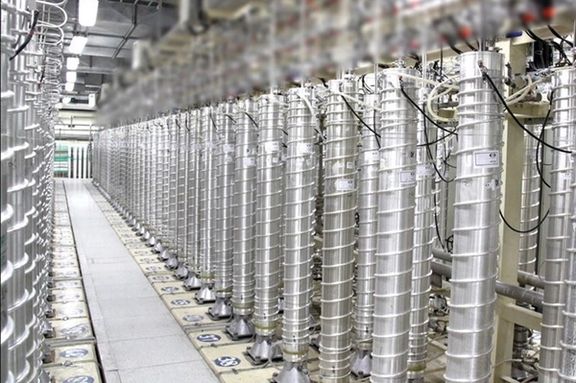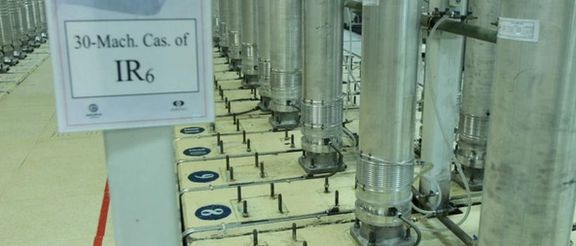US, Allies Warn Iran To Comply With Nuclear Obligations

A UN watchdog report shows Iran is inconsistent in meeting its nuclear obligations, the United States, Britain, France and Germany said in a joint statement Friday.

A UN watchdog report shows Iran is inconsistent in meeting its nuclear obligations, the United States, Britain, France and Germany said in a joint statement Friday.
The International Atomic Energy Agency (IAEA) criticized Iran on Wednesday for making an undeclared change to the interconnection between the two clusters of advanced machines enriching uranium to up to 60% purity, close to weapons grade, at its Fordow plant.
Iran said the IAEA's position on Tehran's nuclear work was not correct.
“Iranian claims that this action was carried out in error are inadequate. We judge Iran’s actions based on the impartial and objective reports of the IAEA, not Iran’s purported intent,” the Western powers said in their statement.
The IAEA Board of Governors comprised of more than 30 countries has already censured Iran several times for breaching its obligation. The Board took action twice in 2022, as a warning to Iran that the West can take the issue to the UN Security Council.
According to the 2015 nuclear accord with Iran known as JCPOA, signatories can trigger the automatic re-institution of international sanctions imposed by the Security Council in the early 2010s that were lifted when the deal was made. In this case, since the United States has withdrawn form the agreement, the three European countries can resort to the ‘trigger mechanism.’
The IAEA found the change during an unannounced inspection on Jan. 21 at the Fordow Fuel enrichment Plant (FFEP), a site dug into a mountain where inspectors are stepping up checks after Iran said it would dramatically expand enrichment.

"As stated by the Agency, this unnotified change is inconsistent with Iran's obligations under its NPT-required Comprehensive Safeguards Agreement," the four countries said in their statement, referring to the Treaty on the Non-Proliferation of Nuclear Weapons.
"The IAEA inspector's interpretation was incorrect but we reported it to the agency ... We immediately provided the explanation to the IAEA on the same day," Iranian nuclear chief Mohammad Eslami said on Thursday.
Eslami in a television program Friday night in general terms, claiming that the country needs nuclear power generation and nuclear medicine. Iranian officials often make misleading statement to the domestic audience, not mentioning that a high degree of uranium enrichment is not needed for civilian purposes. Nuclear reactors use less than 5-percent enriched uranium, while Iran has so far accumulated enough 60-percent uranium for one nuclear bomb.

The production of high-enriched uranium by Iran at Fordow carries significant proliferation-related risks and is without any credible civilian justification, the joint statement said.
Fordow is so sensitive that the 2015 nuclear deal between Iran and major powers banned enrichment there. Since the United States pulled out of the deal in 2018 and reimposed sanctions against Iran, the Islamic Republic has breached many of the deal's restrictions on its nuclear activities.
The Western powers warned, “We call on Iran to comply with all its legally-binding international obligations under its Comprehensive Safeguards Agreement with the IAEA and to fully cooperate with the Agency in the application of effective safeguards at Fordow.”